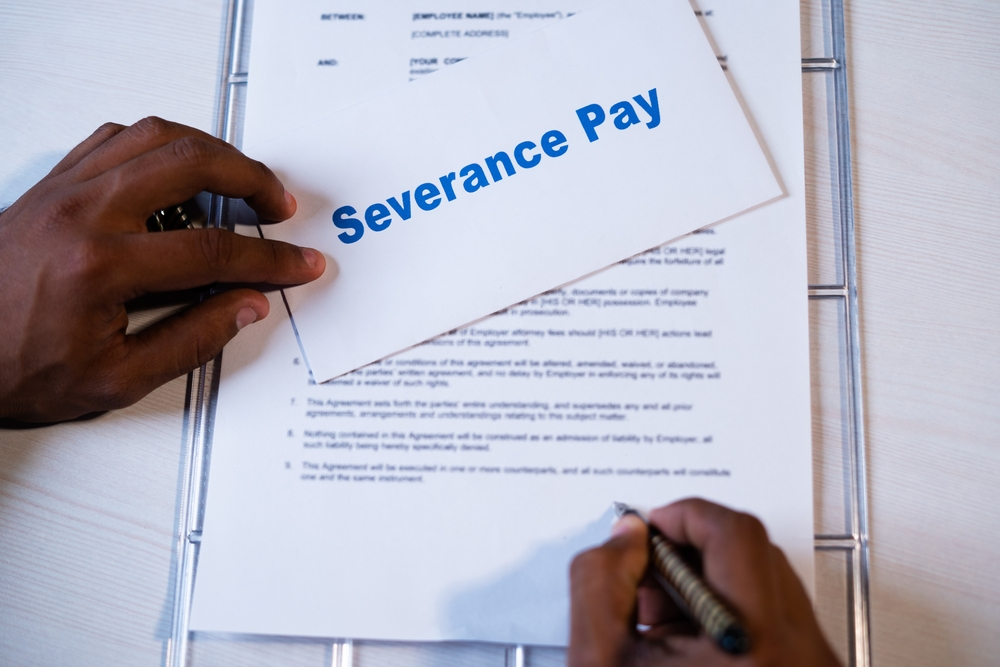
Construction Workers: Are You Missing Out on Hard-Earned Wages?
Construction workers across California face an alarming reality: wage theft is rampant on job sites, with seven particular violations occurring with disturbing frequency. If you’re working in the construction industry, you might lose thousands of dollars each year without even realizing it. These violations hurt your paycheck and affect your ability to support your family and build financial security. The construction industry’s fast-paced, project-based nature creates an environment where employer shortcuts on wages have become unfortunately common, leaving workers bearing the financial burden.
Don’t let wage violations keep you from the earnings you deserve. Reach out to RD Law Group APC today to explore your options for recovering unpaid wages. Give us a call at (424) 535-1500 or contact us online to take the first step toward securing your financial future.

Your Rights Under California Labor Laws: What Every Construction Worker Should Know
California offers some of the strongest worker protections in the nation, but these protections only help if you know they exist. The California Labor Code provides extensive rights for construction workers, including minimum wage requirements, overtime provisions, break periods, and specific protections against wage theft.
Unlike federal law, California requires overtime pay after 8 hours in a single workday and double-time pay after 12 hours. Additionally, California’s prevailing wage laws for public works projects ensure construction workers receive fair compensation based on the type of work performed and the project’s location. Knowing these rights is your first defense against the wage violations discussed below.
Tip: Many construction workers don’t realize they’re entitled to more than their base pay rate, and employers often rely on this knowledge gap.
The 7 Most Common Wage Violations in Construction: Know What to Watch For
Identifying wage violations is the first step toward addressing them. The following violations represent the most prevalent issues construction workers face on job sites throughout California:
-
Falsified records
-
Underpayment
-
Unlawful paycheck deductions
-
Misclassification
-
Lack of payment for overtime
-
Withholding salary
-
Not giving required breaks
Tip: Each of these practices is illegal under state labor laws, and recognizing them can help you protect your earnings and take appropriate action when necessary.
How RD Law Group Helps Construction Workers Recover Unpaid Wages
Having a knowledgeable advocate can make all the difference when facing wage violations. At RD Law Group, we’ve successfully recovered millions in unpaid wages for construction workers throughout California. We understand your industry-specific challenges and employers’ tactics to withhold rightful compensation.
Our approach begins with thoroughly reviewing your situation – examining pay stubs, timesheets, and job classifications to identify potential violations. We then pursue all available remedies, including recovering wages, interest, penalties, and, in some cases, attorney’s fees.
Tip: The law provides powerful tools to recover what you’re owed, but navigating the complex legal process requires skilled knowledge of construction industry practices and California wage laws.
Understanding Your Rights to Back Pay and Penalties
California law provides robust remedies for wage violations, often exceeding simple repayment of the original amounts owed. When an employer violates wage laws, they may be required to pay not just the original unpaid wages but also interest, penalties, and, in many cases, attorney’s fees.
For example, under Labor Code Section 558, employers who violate overtime laws can face penalties of $50 for the first violation and $100 for each subsequent violation per employee per pay period. Additionally, if you weren’t provided the required meal and rest breaks, you’re entitled to an additional hour of pay at your regular rate for each day the break wasn’t offered. This hurts a lot of workers in California. Did you know that 75% of Los Angeles workers miss out on overtime pay they’re legally entitled to?
Tip: These penalties can quickly multiply, creating significant financial consequences for employers disregarding wage laws.
Statute of Limitations: Don’t Wait Too Long
Time is critical when pursuing wage claims in California. Generally, you have three years from the date of the violation to file a wage claim, but in some cases involving written contracts, you may have up to four years. We frequently see clients who’ve lost significant portions of their potential recovery because they waited too long to take action.
Tip: In our experience, the sooner you consult with a wage rights attorney in Los Angeles, the more options you’ll have for recovering your full wages and applicable penalties.
The Real Cost of Misclassification in Construction
Being misclassified as an independent contractor rather than an employee creates far-reaching financial consequences beyond overtime violations. When misclassified, you’re responsible for the employer and employee portions of Social Security and Medicare taxes—approximately 15.3% of your income.
You also lose access to workers’ compensation protection, unemployment insurance, employer-provided health insurance, and retirement benefits. Where workplace injuries are common for construction workers, lacking workers’ compensation coverage can be financially devastating.
Tip: The financial impact of misclassification can easily amount to thousands of dollars annually per worker, with the construction industry showing one of the highest rates of misclassification across all sectors.
California’s ABC Test: Stronger Protection Against Misclassification
California’s adoption of the ABC test for employee classification gives construction workers stronger protections than most states. Under this test, a worker is presumed to be an employee unless the hiring entity can prove all three of these conditions: (A) the worker is free from control and direction in performing the work; (B) the worker performs work outside the usual course of the hiring entity’s business; and (C) the worker is customarily engaged in an independently established trade or business of the exact nature as the work performed.
Tip: This test makes it particularly difficult for construction companies to classify most on-site labor as working with independent contractors since construction work is typically central to a construction company’s business.
Prevailing Wage Requirements on Public Construction Projects
California’s prevailing wage laws offer significant financial protection for construction workers on public works projects. These laws require contractors to pay wages that reflect the going rate for specific job classifications in the geographic area where the work is performed. The California Department of Industrial Relations publishes these rates, which vary by county and job classification.
Tip: Understanding the prevailing wage requirements for your specific role and location is essential to compensate you on public projects properly.
Common Prevailing Wage Violations
Contractors frequently violate prevailing wage laws through deliberate misclassification, assigning workers to lower-paying job categories than their actual work requires. For example, an electrician performing an electrician’s duties might be classified and paid as a general laborer, resulting in significant underpayment.
Other common violations include failing to pay required overtime rates on prevailing wage projects, not providing required fringe benefits, or inaccurately reporting hours worked on certified payroll records.
Tip: These violations often go undetected because workers don’t know the correct prevailing wage rate for their position or don’t understand how to verify that their employer is properly reporting their hours and classifications.
Taking Action: Steps to Address Wage Violations
If you believe you’ve experienced any of the seven common wage violations, taking prompt and strategic action is essential to protect your rights and recover your earnings. Your approach can significantly impact the outcome of your case and the compensation you ultimately receive.
Tip: Understanding your options and the potential pathways to resolution can help you make informed decisions about how to proceed.
Documentation: Your Most Powerful Tool
The strength of your wage claim depends mainly on your documentation. Keep detailed records of your hours, including start and end times, breaks taken, and any work performed before or after scheduled shifts. Save all pay stubs, employment agreements, and communications about pay rates or job classifications.
If your employer doesn’t provide proper documentation, maintain your records with dates, times, and work descriptions. When applicable, take photos of job site postings showing prevailing wage rates.
Tip: These records will form the foundation of any wage claim and can make the difference between a successful recovery and a dismissed case.
Frequently Asked Questions
-
How do I know if I’m being correctly paid prevailing wages on a construction project?
Check the job site postings, which should display the applicable prevailing wage rates for different classifications. You can verify rates through the California Department of Industrial Relations website by searching for your job classification and county. Compare these rates with your actual pay. Remember that prevailing wage includes both the base rate and fringe benefits. If you’re working on a public construction project and receiving less than the published rates, consult with a construction wage lawyer in Los Angeles to understand your options for recovery.
-
Can my employer legally deduct the tools or safety equipment cost from my paycheck?
Generally, no. California labor laws prohibit employers from requiring employees to pay for tools, equipment, or protective gear necessary to perform their jobs or comply with occupational safety requirements. If your employer deducts for these items, it’s likely a wage violation. The exception is if you agree in writing to be responsible for lost or damaged equipment, but even then, strict limitations apply. A Los Angeles labor violation lawyer can review your specific situation and help determine if the deductions are legal.
-
I’m afraid I’ll lose my job if I challenge wage violations. What protections do I have?
California law strictly prohibits retaliation against employees who assert their wage rights. Under Labor Code Section 98.6, employers cannot discharge, discriminate, or retaliate against employees who file wage claims, complain about labor violations, or participate in investigations. If you experience retaliation after raising wage concerns, you may have additional claims against your employer, including reinstatement, back pay, and penalties. Working with a wage dispute lawyer in Los Angeles can help protect you throughout this process.
-
How long does it typically take to resolve a construction wage violation case?
The timeline varies significantly depending on your chosen approach. Filing a wage claim with the Labor Commissioner might be resolved in 6-12 months, while litigation through the courts typically takes 12-24 months. Factors affecting the timeline include the complexity of violations, the number of affected workers, employer cooperation, and whether settlement negotiations are successful. Many cases are resolved through settlement before reaching a hearing or trial. A construction worker lawyer in Los Angeles can help you choose the most efficient path based on your specific circumstances.
-
What’s the difference between filing a wage claim with the Labor Commissioner and filing a lawsuit?
Filing with the Labor Commissioner (often called a “wage claim”) is generally faster, less formal, and doesn’t require an attorney. However, it may result in lower recoveries and offer fewer procedural protections. A lawsuit in court provides more comprehensive discovery options, jury trial rights, and potentially higher damages awards, including attorney’s fees, but typically takes longer and requires navigating complex legal procedures. A Los Angeles wage lawsuit attorney can evaluate which option better suits your situation based on the violations involved, the amount owed, and your priorities.
Work with a Wages Lawyer
Construction workers facing wage violations need more than just general legal advice – they need an advocate who understands both construction industry practices and the nuances of California wage laws. When selecting a wage attorney, look for someone with specific experience handling construction industry cases and a track record of successful recoveries. The initial consultation should include a thorough review of your situation, clearly explaining your legal options and transparency about the process ahead.
Many wage violation cases are handled contingently, meaning attorney fees are paid only if you recover wages or penalties. Taking action against wage violations isn’t just about your recovery – it helps establish accountability that protects all workers in the construction industry and ensures that employers who follow the rules aren’t placed at a competitive disadvantage.
Don’t let wage violations rob you of your rightful earnings. Connect with RD Law Group APC to explore your options for reclaiming unpaid wages. Dial (424) 535-1500 or contact us online to take the first step toward securing your financial future.



